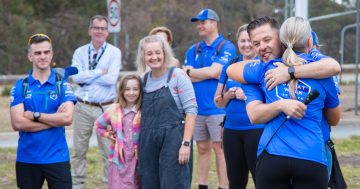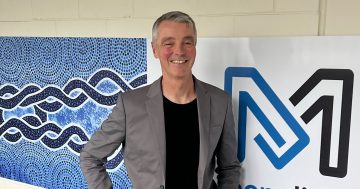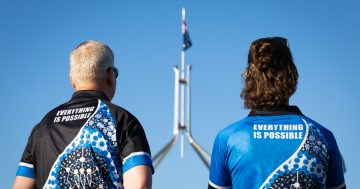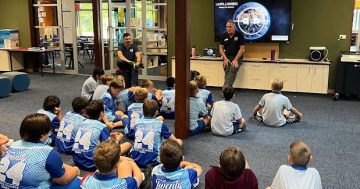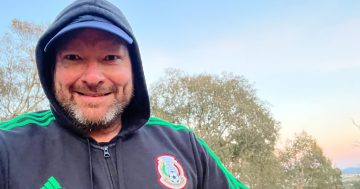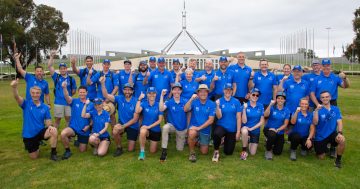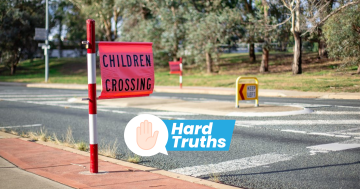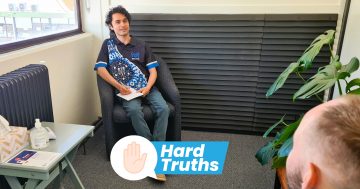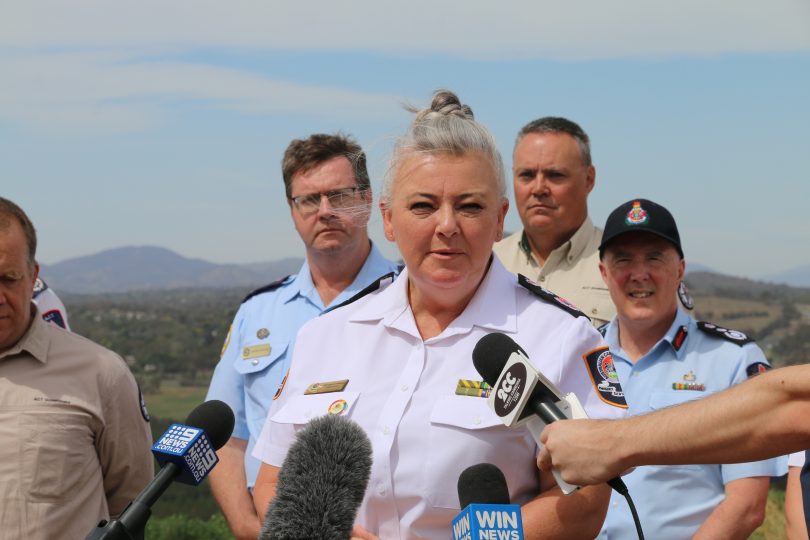
ESA Commissioner Georgeina Whelan spoke to the Menslink breakfast about resilience in a crisis. Photo: Dominic Giannini.
This year’s Menslink business breakfast should have been the usual huge event, filled with supporters of the organisation’s critical work.
That wasn’t to be as the pandemic intervened, but ESA Commissioner Georgeina Whelan’s words about resilience, the value of self-care and how to just keep going through unimaginably hard times resonated with the online audience perhaps more deeply than ever.
One measure of that is the significant increase in calls for help the organisation is juggling.
Menslink CEO Martin Fisk says that where they used to have double the demand they could meet from their resources, demand has now tripled as a result of pandemic-induced dislocation, stress and loss.
Menslink has just released its first impact survey results in collaboration with the University of Canberra. They’re working together to provide substantive information about how effective Menslink’s work with vulnerable boys and young men is. The evidence is in – Menslink works.
“We worked with the University of Canberra’s centre for applied psychology,” Martin says.
“The survey was designed to look at what impact we were having on young fellas and their families, on things like feelings of hopelessness, their ability to manage anger and aggression, social behaviour, relationships with their families, peers, staff and work colleagues.
“The survey results across all our programs show that overwhelmingly we are having a very positive impact on people’s lives and their communities. The results speak for themselves.”
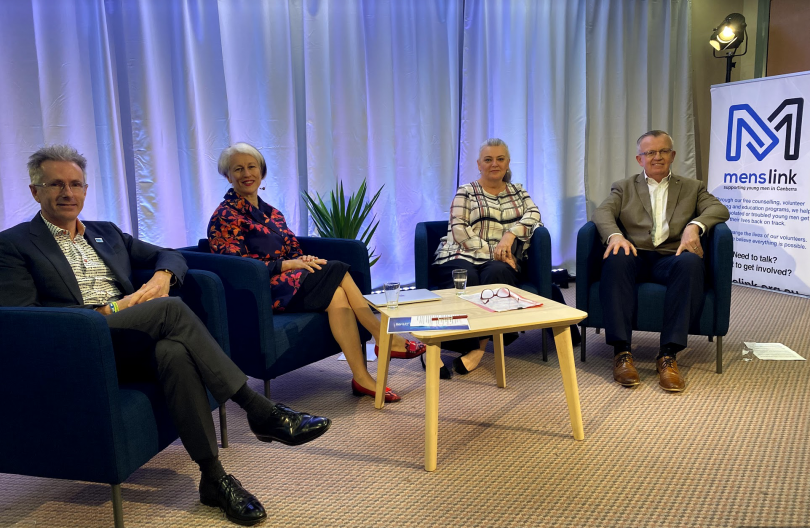
This year’s Menslink Business Breakfast was virtual. Photo: Supplied.
Regarding their counselling program, for example, the UC findings show that 100 per cent of respondents reported a positive or very positive impact on their engagement in class and their relationships with their families.
A total of 84 per cent reported a positive or very positive impact on their ability to manage anger and aggression, and 95 per cent reported positive or very positive impacts on confidence and self-esteem.
The Silence is Deadly program, which runs in schools, has been similarly successful, as have the impacts on anti-social behaviour, and an ability to take responsibility for actions.
Menslink plans to release results every six months, working with UC to track the most effective parts of their program. Dr James Neill from UC says the results show that Menslink cared about the needs of young men and was an active learning operation.
“What I find very rewarding as the CEO of this amazing organisation is the feedback, ranging from the young fella who said ‘the worst thing about the Menslink program is the fact that it’s ended for me’ through to schools saying our program are the most important ones they’ve had, to parents who thank us time and time again for literally saving their young man’s life,” Mr Fisk says.
“I had a mum ring Menslink two weeks ago. Unfortunately, a family friend from overseas had just lost their teenage son. She wanted us to know that without Menslink she could have been in the same situation. That she picked up the phone to say thank you was heartwarming to all those who deal with these young men.”
Menslink provides a range of support services for young men in Canberra. To find out more, or to support their services, visit Menslink.












